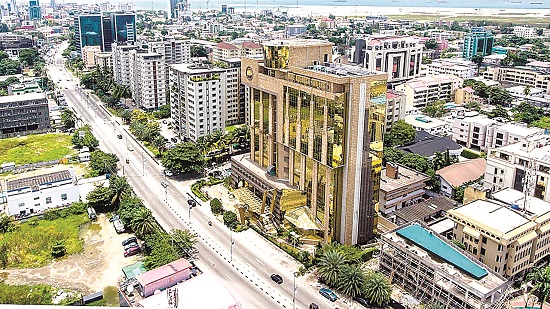This post has already been read 1003 times!
•Investors task govt on incentives to enhance industry growth
The nearly one-year devastating effect of the COVID-19 crisis has continued to take huge toll on the hospitality sector, as the bottom-line of listed firms in the sector has remained vulnerable to the challenges of restrictions.
The most hit is the share price of these companies on the Nigerian Stock Exchange (NSE), which has remained stagnated at nominal value year to date following negative sentiments that have enveloped the demand of the stocks.
Apparently irked by the unprecedented loss incurred by the firms in the sector, especially in the current financial year, stock market investors at the weekend, stressed the need for government to support listed firms under the sector with incentives in form of tax holiday and other palliatives throughout the period of the pandemic.
Indeed, the Nigerian hospitality sector, which is yet to recover from the traditional lull in business between January and early February of every year, is facing an even more difficult challenge occasioned by the coronavirus crisis.
This is because the sector has a vulnerable and dynamic structure that can be affected very quickly by external events; the pandemic has confronted the industry with an unprecedented challenge.
Strategies to flatten the COVID-19 curve such as community lockdowns, social distancing, stay-at-home orders, travel and mobility restrictions resulted in temporary closure of many hospitality businesses and significantly reduced the demand for the services.
Flights were grounded due to the closing of airports around the world, while some hotels have been converted to isolation centres to cater for those infected with the virus.
Restrictions placed on travel and stay-at-home orders issued by the authorities led to sharp decline in hotel occupancies and revenues.The investors argued that government should engage industry stakeholders on various intervention measures that would help revitalise the company and boost profitability as obtainable in other emerging economies.
Report from four of the major listed hotels on the Nigerian Stock Exchange (NSE), revealed a revenue decline of nearly 90 per cent due to lockdowns.
While the reopening process has slowly begun and authorities have started to ease restrictions, the COVID-19 second waves continues to exert profound impacts on the operating profit of firms under the sector due to low patronage and increasing cases of the pandemic.
Ikeja Hotels , Tourist Company of Nigeria , Capital Hotels , and Transcorp Hilton Hotel Plc have lost a large chunk of their revenue in the three months preceding June 2020
A look at the third quarter result of Transnational Corporation of Nigeria Plc, one of the big players in the industry showed that its revenue declined by -7% to N54 billion from N58 billion achieved in the previous quarter.
The company’s profit before tax declined by 73 per cent to N2 billion from N7.3 billion achieved in the corresponding period in 2019 while profit after tax declined by 74 per cent to N1.7 billion down from N6.7 billion in 2019
Ikeja Hotel Plc also posted a second consecutive loss in 2020. Its revenue fell by -60.49 percent from N9.12 billion in Q3 2019 to N3.6 billion in Q3 2020.
The decline was the result of falling incomes from main operating revenue lines, room occupancy fell and revenues from beverages, a major top line item also declined.
The decline in income from major slices of the hotel’s business was the result of a partial lockdown of the economy in Q2 2020 at the height of the spread of the coronavirus which affected travels, disrupted supply chains, and reduced patronage of the hospitality sector
Its loss before tax dipped by -330 percent in Q3 2020. The hotel’s loss before tax rose to N1.39 billion in Q3 2020 from a loss of N777.06 million in H1 2020 and a profit before tax of N603.88 million in Q3 2019.
For Capital hotel plc, its Q3 2020 Unaudited results showed that revenue declined by -62 per cent to N1.4 billion from N3.7 billion posted in corresponding period in 2019.
The firm’s loss before tax stood at N257 million while net assets grew by 177 per cent from N6.6 billion to N18.2 billion. The President of New dimension Shareholders Association of Nigeria, Patrick Ajudua urged government to provide palliatives for the sector to avoid collapse.
He also underscored the need for directors of companies under the sector to cut down on fees and review all technical agreement inimical to the growth of the company.
“On the part of the regulator, there is need to review period of filling of returns which normally attract fine and penalty.
“On the part of the company, the management should focus on cost reduction strategies and ensure sustainability of existing business contacts.”
The Publicity Secretary of the Independent Shareholders Association, Moses Igbrude said the pandemic has led to the closure of some companies and retrenchment in the sector.
“There is the need for the FG to intervene and rescue the sectors mostly affected by the pandemic especially hospitality and tourism as well the aviation.”
An independent investor, Amaechi Egbo said there has been a remarkable decline in the occupancy rate, the number of guests arriving and the revenues of operators in the industry.
He pointed out that crisis is one of the events by which the hospitality industry is most affected due to its dynamic structure.
“Hospitality businesses are expected to make substantial changes to their operations in the COVID-19 business environment in order to ensure employees’ and customers’ health and safety, and enhance customers’ willingness to patronise their business.”



